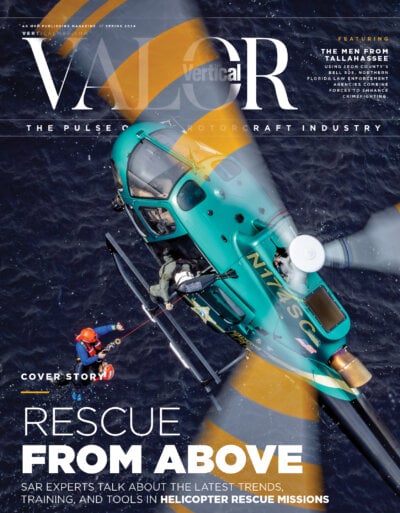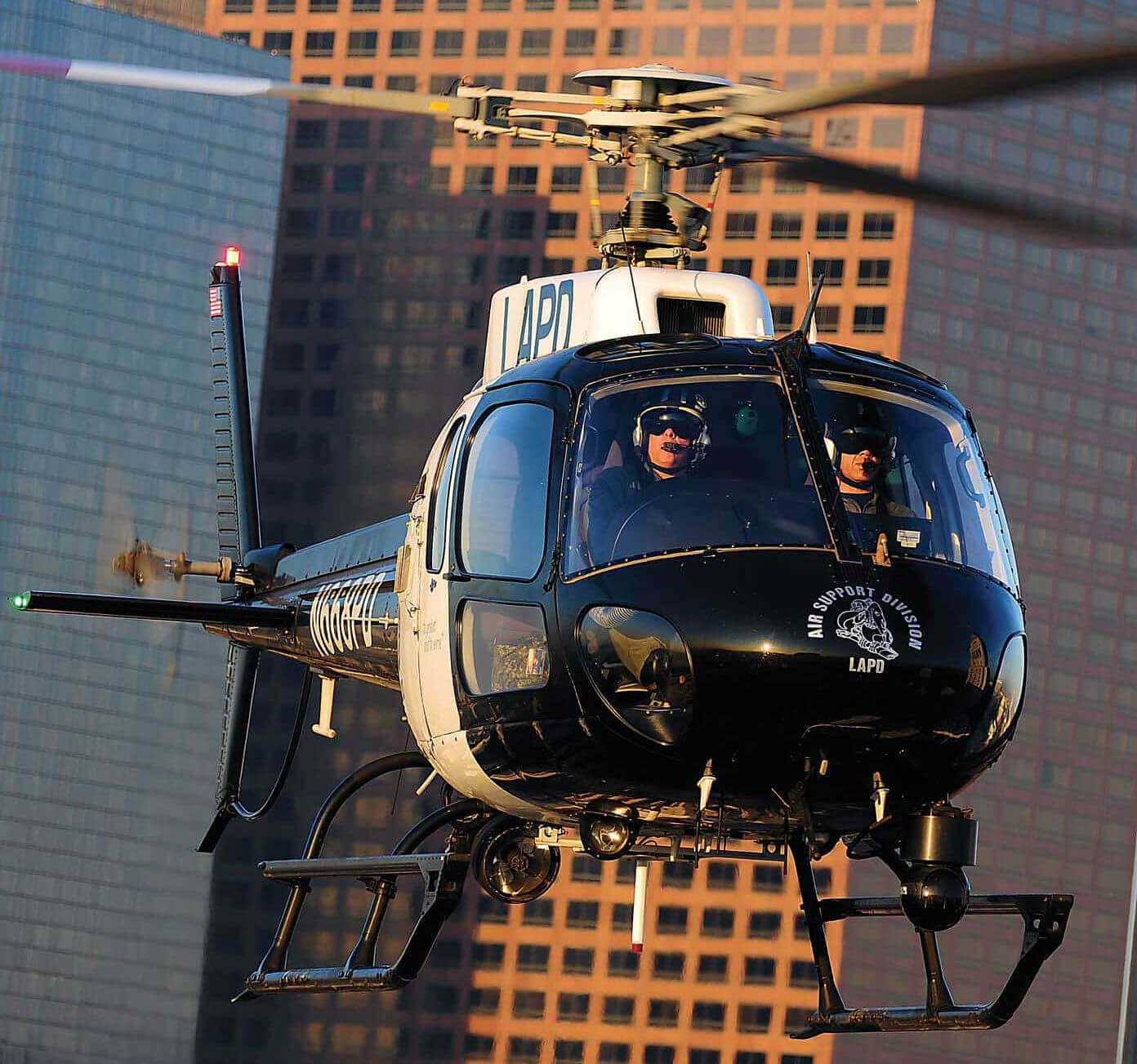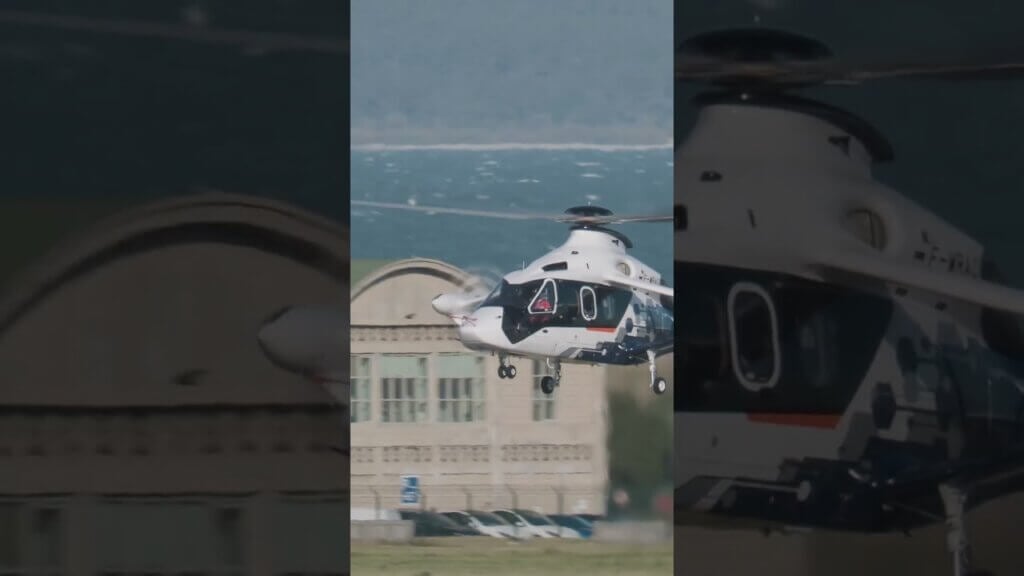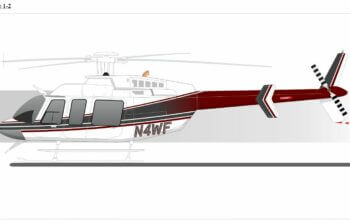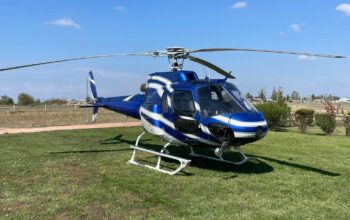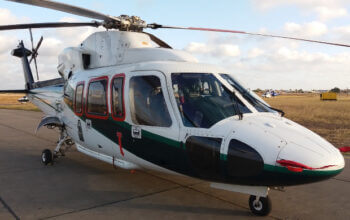Editor’s Note: Jack Schonely was recently named the winner of HAI’s 2017 Salute to Excellence MD Helicopters Law Enforcement Award. This interview originally appeared in the Summer 2016 issue of Vertical 911.
After more than 31 years with the Los Angeles Police Department (LAPD), much of that time as a tactical flight officer (TFO) and pilot in the Air Support Division, Jack Schonely retired from the force in May 2016. An internationally recognized expert in suspect tactics and perimeter containment, he is widely sought after as a consultant and educator. He was recognized at the 2016 Airborne Law Enforcement Association exposition with the Robert L. Cormier Award, which recognizes individuals whose personal actions have perpetuated the professionalism and advancement of airborne law enforcement in public service.

Vertical 911: Tell me about the path that took you into the Air Support Division.
Jack Schonely: Growing up, I was always interested in aviation. Always, always, always. I went to air shows, did the usual things related to that. I was always fascinated by helicopters. But my life path just didn’t go in that direction at all — it went to law enforcement. I was a criminal justice major in college. I ended up joining LAPD in November of 1983, and I was part of a 10,000-officer department, very happy with my choice, and I was working with helicopters on a nightly basis, particularly in K-9. In K-9, the relationship between K-9 handlers and Air Support was very close. We worked with them every night, we knew many of them personally, we knew all of their names, all of their voices. And so I was always intrigued by that, how they enhanced my safety on a nightly basis.
As I was going into my fifth year in K-9, I started thinking about what I was going to do next. And a very good friend in Air Support was a tactical flight officer and said, “Hey, there are some tactical flight officer openings coming up, you should apply. You would be good at this. You’re a good communicator, you know the city, you know the tactics, you’re doing it all the time. I think you’d love it.” I said, “I’ll give it a try,” and I did. That’s how I got there.
V911: Bringing that perspective from the streets, what did you identify as some of the most important things that air crews could provide to officers on the ground?
JS: I would say that the most important was being able to see things ahead of where you actually were, and the tactical insight that goes with that. They would tell us, “OK, the next yard you go into, this is what it looks like, this is what’s there, and use caution.” Or they would say, “Hey, I’ve got this heat source a couple of yards away from you. If I were you, I would come back to the street, go up two houses, go down that driveway, and approach from the west.” And I remember thinking, “Wow, that’s so helpful that they can do that for us. How do they do that?” It wasn’t until I was up there that I realized how clear it is many times — not always, but many times — to see those things, and to provide that tactical insight and safety for officers.
V911: Tell me about your experience as a TFO. How do you view that role?
JS: This is one of my passions, the TFO position, because I found out very, very quickly that it truly is the most challenging job in law enforcement, if done correctly. And I always add, “if done correctly,” because you can sit there like a bump on a log and be a TFO, and that is not that hard. But if you’re doing what a professional TFO should be doing, needs to be doing, must be doing, it is the most difficult job in law enforcement.
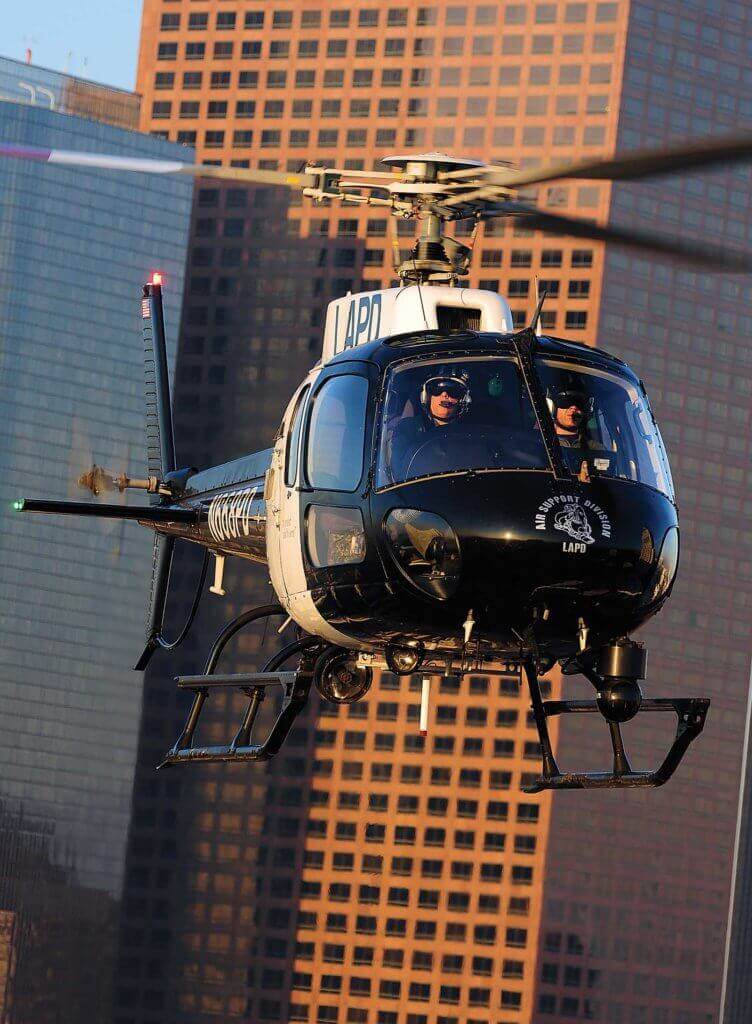
I also found out very quickly it’s not for everyone. A lot of it is just inside of you; it can’t be taught. For instance, knowing north from south after a couple of orbits. How do you teach that? You can give tips to people, but you either have that or you don’t. There’s a communication layer, obviously, that some people are better at than others. People that can talk, tend to be good TFOs. People that are not as good at talking, communicating — maybe not.
It’s a line I use all the time: the TFO job is not for everyone, and that’s a fact. I feel lucky that I was able to do it, because it ended up leading to a whole other segment of my career, and a whole other life almost. And I feel really lucky that I made it through the program and enjoyed it, and I did. I loved every minute of it. It was so much fun. The challenge of that job is so incredible that I’ve never had anything else like that. And that includes becoming a pilot.
V911: Speaking of which, how did you transition into flying, and why?
JS: Well, as a TFO obviously you’re up there flying every night with the pilot, and back in ’97, ’98, ’99, when I was doing that, there was a significant pay difference as a pilot, so that was a draw. But it was also, “Wow, this is my chance. My interest in aviation all these years since I was little, and I might actually be able to do this now, and get paid for it!” So I went out and got my private fixed-wing — you needed a minimum private fixed-wing with 100 hours of PIC [pilot in command] time. And then I applied, I came out at the top of the list, and boom, now L.A. teaches me how to fly a Bell 206, just like that. What an incredible opportunity!
What I found out very quickly was, I really, really liked it. It was very fun, and it was different from the other seat; less tactical but much more responsibility. I threw myself into that wholeheartedly, and got through the six months of training, and got wings, and went right into the fire. They put me into the TFO training slot right away. The next thing you know, I’ve got police officers that are sitting next to me that want to be a TFO in their first month, and I’m trying to teach them how to use the radios and how to navigate and how to make calls and all that. That was one of the most challenging things I’ve ever done as a pilot, I can tell you that. That was harder than being a check airman, that was harder than being a flight instructor — being a primary TFO trainer was quite challenging.
V911: How did that influence your later approach to training pilots?
JS: I can tell you that being a TFO trainer certainly benefited me when I started to train pilots as a flight instructor, because I learned basic teaching techniques, and more importantly, in-cockpit teaching techniques. I saw what worked, what didn’t work. I saw very early on that there’s enough stress in the world, and in that cockpit, that I don’t need to add any to it, if I can help it. I tried that with TFOs, I tried to tone down the stress for them as much as I could, and I found that as a flight instructor, that was kind of my philosophy. Some of the flight instructors I had, they were very, very good at that, at just being cool and calm and not getting too excited, and not getting angry, and not getting frustrated. And those were my best instructors, so I modeled my style after those.
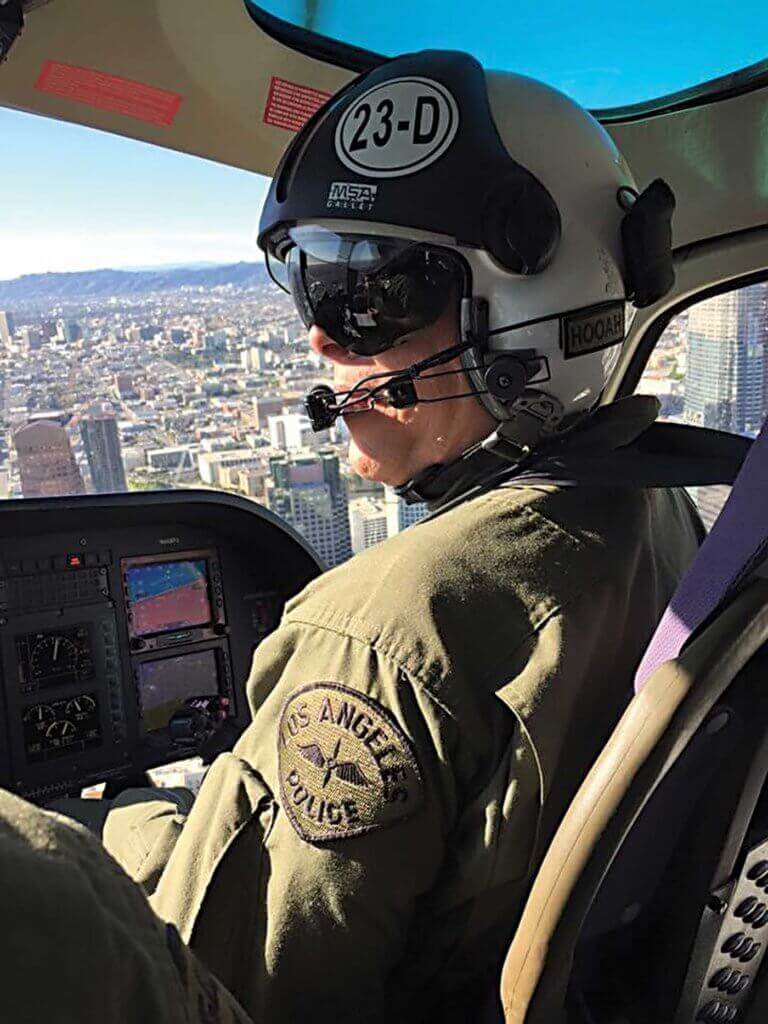
I understand, that everyone has a different style, and the reason is they’re different personalities. I’m not one to get angry about something. What sense does it make to me to say, “No! That’s not what I told you to do, I want you to land two feet to the right!” That doesn’t do them any good. Just say, “Hey, you ended up over here, that’s kind of funny.” And they go, “Yeah, sorry about that.” “Yeah, well, let’s go do it again.” It’s the same thing, in a different style, and we all end up in the end getting the student ready.
V911: What are some of the key pieces of advice that you’ve given your pilots?
JS: That’s easy. I’ve said for a long time that you can be the best stick, really have the skills, and that has never impressed me. What impresses me is somebody who’s a great decision-maker, and they have good skills. If they have good skills, and they’re an outstanding decision-maker, they’re going to be safer, they’re going to keep themselves alive, their partner alive, and they’re not going to do stupid things that are going to get them into trouble. There’s enough risk out there without adding risk. Just flying is risky. You start going out in marginal weather, when you shouldn’t be, or you start pushing the envelope when you shouldn’t be, or you break the rules, you’re going to pay. Maybe not today, maybe not next week, maybe not even in the next five years. But someday, that kind of pilot is going to pay the price.
V911: Have you seen a shift over the course of your career, where more people in airborne law enforcement are conscious of that?
JS: Yes, I really think so. I think it’s changed a lot. There are a lot of people — agencies, and units, and individuals — that look at things completely differently today than they did 10 years ago, and certainly 20 years ago. I look at our agency, and we are light-years from where we were 10, 20 years ago in the areas of decision-making, risk analysis, SMS [safety management systems], crew resource management, all that. That has come a long way, and I think the average pilot now has bought into it. You’ve heard that term “buy-in” at safety seminars: “You’ve got to get the people to buy in.” Well, I think most buy in. And when I got to Air Support in ’97, I don’t know that as many pilots were buying into the idea. More have now, and I think we’re safer because of it.
V911: What’s next for you now?
JS: I’m continuing to teach. There’s a lot of instructing ahead, is what I picture, and some of it will be to patrol officers and K-9 officers, but a lot of it is going to be to law enforcement aviation people. I want to continue to do that, as long as someone invites me and thinks I’m worth listening to for a minute. When they stop calling, that’s when I’ll stop doing it. In between all that, I plan on riding my bicycle a lot, and I plan on traveling with Tracy a lot, and I plan on kayaking and hitting the slopes of Mount Bachelor — there’s lots of good things to keep me busy in between the classes.
This interview has been edited and condensed.




